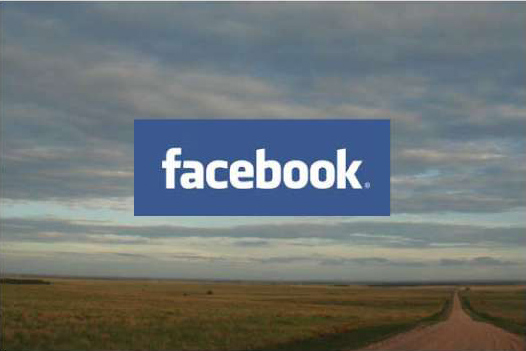
One of my favorite poet/songwriters, Utah Phillips, once wrote:
“I’ll sing about an emptiness the East has never known,
Where coyotes don’t pay taxes and a man can live alone.
And you’ve got to walk forever just to find a telephone.
It’s sad, but the tellin’ takes me home.”
The West was and is and should always be about silence and space. Lots of it. About endless landscapes that stretch to infinity, and skies so vast and unbroken that they defy description, and moments of such incredible beauty and clarity that you think you’ll burst if you don’t share this extraordinary moment with someone right now.
And what makes the West so special is that you can’t.
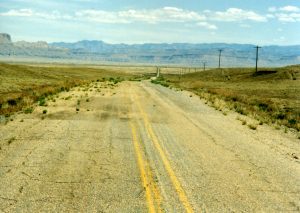
The West has always been about remoteness and unimagined quiet and sometimes it made us crazy trying to decide if we loved it for its solitude or loathed it for its isolation. We really did have to walk forever to find a telephone. No one can truly know the West and love the West without also hating it. But it was the West’s unforgiving nature that also made us feel stronger. We chose to live here with all its emptiness and hardship and unforgiving space. Somehow being able to survive the West, on its terms, gave us a leg up on the world.
Still the West overwhelmed us and filled us with unbridled joy and crushing loneliness, all at once. Like a bear hug from the Universe, we’d stand on the summit of a favorite peak or stretch out on our backs in the middle of a desert valley and for a moment we’d almost be giddy. This, we said, is pure unadulterated joy!
And then the silence would sweep over us and we’d search for some sign that we aren’t as insignificant as we feel, and we couldn’t. We’d look around and think— it’s so…big. And suddenly our laughter would sound like the hollow giggles of a mad man let loose in a coliseum and we’d start to cry. Because this is as good and as bad as it gets.
And we feel so alone and we want to tell someone. We want to hear a voice. But we can’t. Because this is The West—the big, hard, breathtaking, heartbreaking, unrelenting, unforgiving American West. Or at least, it was…
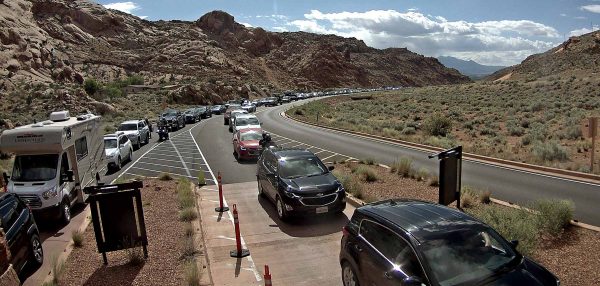
It can be fairly argued that the demise of the “Old West” has been a century-long lament. Ever since Fremont re-discovered South Pass and Marshall found gold at Sutter’s mill, the Pristine West has been chopped and whittled and re-shaped by its conquerors and, for those of us who still suggest there is something more to be lost, our laments increasingly fall upon deaf ears. The truth is, most of us like the New West. Or to be more precise, we “LIKE” it….
This is fast becoming the “Facebook West,” where a man never looks for a telephone and where no one ever needs (or wants) to be alone. Where you can bring the world to your favorite “lonely spot.” Or at least your “friends.” And maybe even your “friends of friends.” Facebook is just a click away from the most remote places on Earth.
I’ve always wished I talked less and listened more, but the world today has little use for the archetypal Westerner—that laconic, taciturn Individual, who only spoke when he had something worth hearing, and maybe not even then. Nobody measures their words now. It goes from brain to keyboard to…everyone. The Facebook West is strikingly similar to the rest of the world.
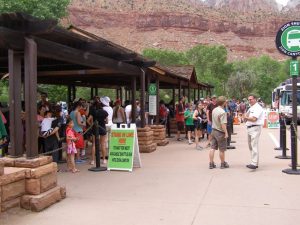
Facebook has grown to a billion members in just a few years and its homogeneity—its same-ness—is stunning. Nobody is ever out of touch. No personal thought is ever too intimate.
A century and more ago, early travelers to the West disappeared for months or years. Friends and family waited for news and when it came, the letters were like cherished relics. Sometimes no news came at all. And legends began.
As a 19 year old wandering the West for the first time, so many years ago, I was gone for three months. It felt like longer. I’d never felt so far away. Before I left home, my grandpa gave me a stack of pre-addressed post cards.
“Send me one a week,” he advised me and when I came back safe and sound, my cards sat in a stack on the kitchen table, where he read and re-read them each morning.
Today, a traveler to the West posts hourly updates…
Tonight’s sunset? It’s just too lovely not to “SHARE.” Post it on the News Feed.
You just got a sense of your own immortality? Please tell the world.
We “LIKE” this.
You’re in Durango…or Sedona…or Flagstaff…or Taos…and you have a taste for Thai tonight? Post your culinary desires and someone out there will help you satisfy that hunger.
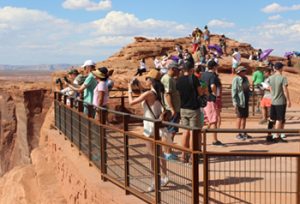
The West’s icons—its landscapes and its heroes—are celebrated in the Facebook West. It makes the perfect gallery for photographs because, after all, the medium is more visual than thought-provoking. And many of the images are stunning. What often gives pause is the way its viewers embrace those images. As lovely as a photograph might be, it cannot be a substitute for the real thing and sometimes it’s not clear if Facebookers know the difference.
Environmental heroes are honored by Facebook in its own inimitable way. The poet/conservationist John Muir can claim that 4190 Facebook users “LIKE” him. Henry David Thoreau is embraced by 18,037 fans. Not bad for men who have been dead for decades or centuries.
Wendell Berry (who is still quite alive and kicking) has 4,616 fans, despite the fact that he doesn’t own a computer and has, by choice and design, never logged onto the internet.
On a page “to promote and discuss the writings and life of Edward Abbey,” his role as a naturalist (one he loathed) usually trumps any serious discussion of Abbey’s more controversial positions like immigration and his membership in the NRA.
Occasionally a contributor to the Abbey page asks the question no one wants to consider: “What would Abbey think of Facebook?” The consensus is always that he would have hated it and then a swarm of Facebookers click the “LIKE” button. Even Cactus Ed’s assumed revulsion for the medium gets a “thumbs up” from its most ardent users and his most enthusiastic admirers.
Nobody seems to notice the contradiction.
In the end, the Facebook West is coming for us all. There is an inevitability about it now that I refused to consider even a few years ago. The banality that we’ve hoped to avoid is now perched on our shoulders and lulling us into submission. It’s comforting to many. We get to be participants, even stars, in what passes for a public discussion in the 21st Century.
And everything is public. A Facebooker recently chastised one of her “friends” for posting “inappropriate comments” on her Wall. “Even if it doesn’t offend me,” she explained, “You never know who is in your audience.”
This is what facebook is really about—we’ve become willing performers, playing to an “audience” full of “friends” who “LIKE” us. Andy Warhol and his “15 minutes” were spot on.
That explains, I suppose, our willingness to abandon the privacy we claim is so precious. We’re asked to list our favorite books and we eagerly comply. Which great actor do we most resemble? We answer without hesitation. What car would we be? Why…the car that suits our personality, whether it’s Mucho Macho or New Age Sensitive.
We unwittingly give the world every detail of our private lives, manufacturing a persona for ourselves in the process. And while we voluntarily spew all the details, somebody out there is taking notes, compiling our profile and we keep making their job easier.
“Yup” and “Nope” just wouldn’t work in the Facebook West. This is no place to be reticent or understated…Gary Cooper wouldn’t stand a chance.
Then it occurs to me. I lament the loss of the empty West and its remote and lonely vistas. I think of the cowboy from “Lonely are the Brave.” All alone…just Jack and his horse. And then I think of millions upon millions of solitary little figures, all around the West and the World, hunched over their various electronic devices in window-less rooms, wishing they were anywhere but where they are, furiously typing their most private thoughts to whoever will listen, and hoping that somebody will reply—that somebody will “LIKE” them.
And I think, Damn, what could be lonelier than that?
***
POSTSCRIPT: Though I have begun to lose my appetite for reporting “the news,” the last two months have been tumultuous, and it’s clear they will have a direct bearing on life in southeast Utah. Consequently, I had reluctantly planned to offer my own analysis and unsolicited opinion of recent events in Washington, and how I think they will affect the future of our beloved canyon country. After 32 years of this, I feel like I can already see the writing on the wall, before I even touch the keyboard. Still, I’d planned to give it a shot.
But just days after the last issue of The Zephyr posted, on December 3, my brother, Jeff Stiles died suddenly at his home near Stanton, in Powell County, Kentucky. He was only 67 years old. The next morning, Tonya and I drove east, a thousand miles, to be with my mother who is 93 and living in a nursing home.
It has been a terrible shock and a blow to us, and it is a story that for now at least, is just too painful to talk about. My brother and I were very different, but we were still brothers. Grief knows no boundaries.
But as if his death alone wasn’t tragedy enough, when we arrived in Kentucky, events continued to unfold that I can only describe as bewildering. It has affected us in ways that are life-changing (I don’t mean to be cryptic here, but it is a story for another time, that does need to be told. And will be.)
I also mention Jeff’s passing here because we had many mutual friends over the years and decades, and most of them still live in the East. His immediate family never published the obituary for my brother in any of the local or regional newspapers in Kentucky and Ohio where Jeff had grown up, worked, and lived. So if you knew my brother, and you want to talk, please contact me at: cczephyr@gmail.com
In any case, I failed to be able to put together anything remotely coherent as it applies to political and environmental events unfolding in America and in the West. This piece was an updated essay that I wrote a while back, but which is even more relevant today than when it was first published…Thanks for your patience and understanding…JS
Jim Stiles is Founding Publisher and Senior Editor of the Canyon Country Zephyr.
To comment, scroll to the bottom of the page.
Zephyr Policy: REAL NAMES ONLY on Comments!
Don’t forget the Zephyr ads! All links are hot!

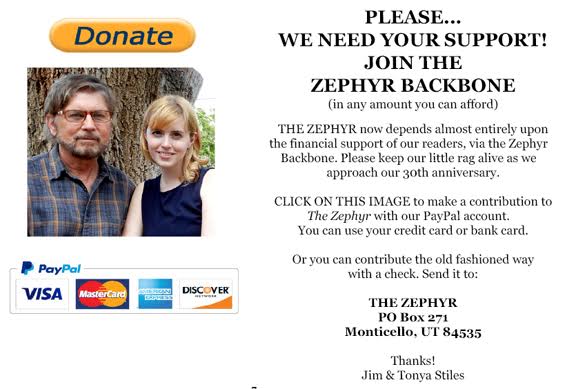
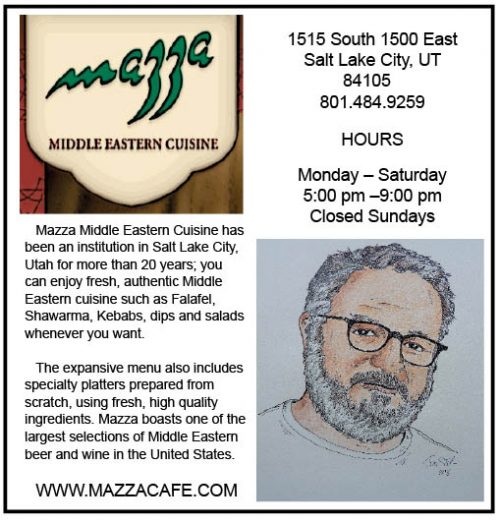
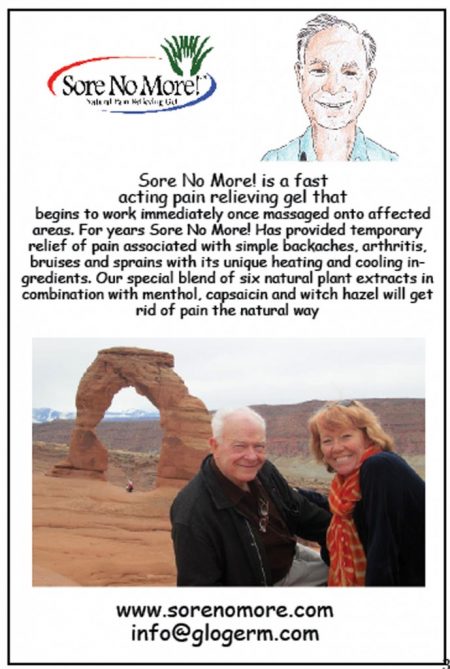
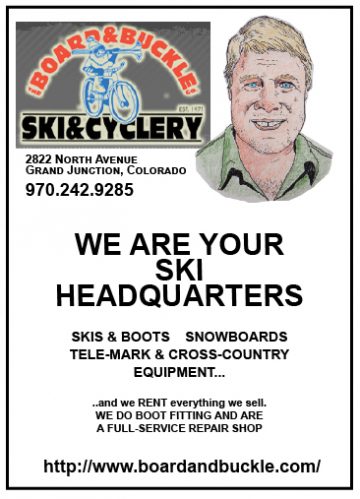
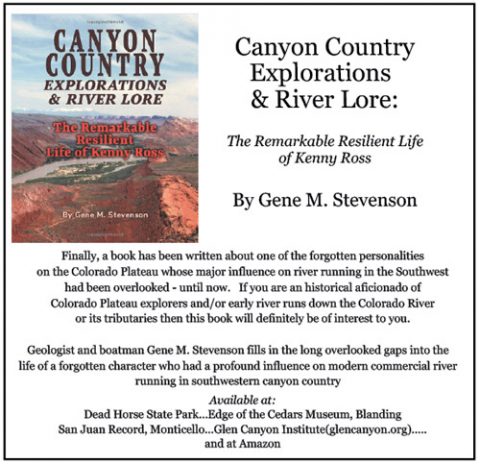
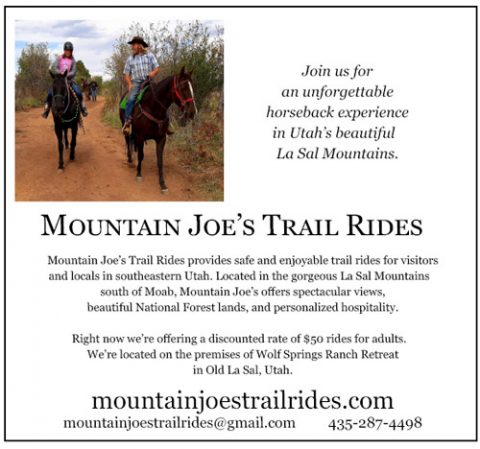
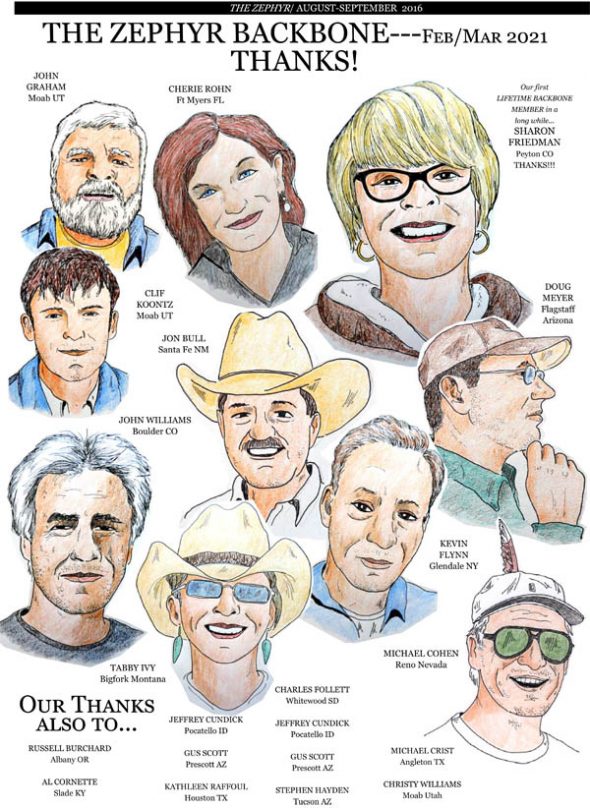
Sorry for your loss, Jim.
My condolences.
Regarding “the West” in our digital age I believe folks, missing a time now gone, should invest in anything that pushes immersive 3D experiences. Perhaps our hope is that with this new technology comes an exodus from wild areas as people plug in and stay home, and ironically if I’m not mistaken Facebook bought Oculus Rift, a leader in that field. We should be nice and encourage them, perhaps they’ll save us in the long run. Never mind the drones…
Sorry for your loss. May you both stay safe.
It was so nice I liked it twice but never on fakebook.
Jim, I always wonder what people mean when they say “‘I’m so sorry.” when they hear a friend’s sad news. And, I am even more baffled by what has happened to the “empty” beauty of where you and Tonya and I live. Maybe not baffled, no. Furious. I once wrote and edited for a now dreadful “pimp-natural-beauty” on-line magazine, Matador Network. I watched the founder and main editor slime what had been an honorable publication. They were greedy for “likes”, which eventually translated into advertising. Get it? They were, I believe, the bad seed of the current plague of influencers.
Loss, my friends. Loss, loss and more loss. The loss of natural places far greater than any sappy fake Eastern teachings about impermanence and letting go.
A place that felt like home.
A brother.
There are no words.
Jim,
You speak of what once was “the big, hard, breathtaking, heartbreaking, unrelenting, unforgiving American West,” followed by a photo of a traffic jam at the entrance to Arches. How perfect…and how tragic for those of us who love the wide open spaces. I identify with your abhorrence of Facebook culture and the insecure needs of people compelled to post selfies and score “likes” for their visits to national parks with thousands of fellow “like-seekers”. For me, experiencing a hike through a Utah canyon or up to a Colorado pass is complete in itself. Getting approval from others for having had the experience seems unnecessary and even boorish.
My sincere condolences.
Our memories keep people in our lives, and speaking of those memories makes the people we lost alive to others around us.
Even though I read the Zephyr infrequently, I always enjoy the unique perspective. Hope you can keep it going.
People tend to respond to things in extremes: the West is gone. Wilderness has vanished. There is no more emptiness. Facebook is evil.
But really, everything is relative: LA is in the West, and so unfortunately is Jackson, but so are some of the emptiest places. There’s a lot more wild country, a lot more wilderness without the capital W, than anyone thinks. There are innumerable places in the West that one can pull one’s automobile over on a smooth paved highway, partaking fully of conveniences of civilization, and experience emptiness more empty than which most of us might not want to. I have lived my life in the golden age of the wilderness, at least as regards accessibility to humans; and civilization 100% made that happen.
What Facebook is to you definitely reflects how you use it.
(Wendell Berry‘s personal experience of the West would be completely unaffected by Facebook. Or the Internet. Think about that.)
(Long disjointed rant about what Indians thought about sailing ships and covered wagons; what people riding around on horses thought about horseless carriages; what the pioneers who went west in wagons thought about railroads; and if God wanted us to fly he’d have given us wings, over. Check.)
Everything, including wild, depends on the initiative taken to find it. When we search for wild we abandon books, never mind the Internet, and never mind the guidance such things might have given us toward finding that place. It really surprises me how often that place is still that place. I have been in one of those lines going into Arches. And we found places in Arches that day that the hordes didn’t. One can still do that. One might not want to be overburdened by one’s feelings about civilization when one finds those places.
Change has always happened and always will. What we lament now has been critical in giving us things we would not want to do without. Such is life. Coming to terms with it helps a well-lived life.
I go to beautiful places; I take pictures; I share them on Facebook. I have said more than once that if it were not for Facebook I might never take a picture. So I can say that Facebook has given me lots of beautiful things I might never have had otherwise. I take that; I use Facebook to contact friends that I wish I could see more in real life but real life hasn’t worked that way; I rant politically on occasion and unburden doing that; and I expect nothing more from it.
I seem to keep finding emptiness, just in the wild, not in my life. And of course the wild is never empty; that is a human perspective. The wild is full of what is not us.
(Don’t tell your ‘audience’ where you took the picture. That helps a lot.)
Loved Jim’s analysis of the “original” West! As a little girl almost 100 years ago I’d sit inside housing remnants of another year, imagining who lived there, what they cooked for breakfast, how they washed their clothes! I spent hours patiently waiting for a chipmunk to come get the peanut I’d stowed under a “trap” consisting of a v-shaped stick with a string tied to it and the peanut (in shell) under an improvised boxlike contraption that would fall and enclose Mr. Chippy as he dared to attack the nut. I’d reach under, grab him/her (didn’t have to do this then) and as he absolutely every time bit me, let him go! I and most of the other kids wandered the desert, alert for rattlers, catching and releasing lizards, building joshua seed cone houses, grading roads for spool cars. Just had to be home for meals and when the lights on the poles blinked twice, denoting they’d be turned off for the night. Wouldn’t trade that life for a dozen phones that three year olds have. Nor do I subscribe to Google, Twitter or the like. Donna Andress
My condolences, Jim. And amen!
Guy
where’s the “like” button for this?
“The West has always been about remoteness and unimagined quiet and sometimes it made us crazy trying to decide if we loved it for its solitude or loathed it for its isolation.”
I can relate to so much of your writing, Jim, but admittedly I have never—not once in all the years I’ve lived here—loathed this sense of solitude and isolation. To me it is always, without exception, comforting. I lament its loss in so many places.
Guy
Wonderful article and sentiments.
I’d just like to add that yes the West you reminisce of is gone, if you’re trying to drive a passenger car there. Of course it is. The fact that you could once drive there, before others did and after the time one had to take a horse is, well, a pretty fine point and a short period of time. There is still plenty of wilderness with a 4×4 vehicle or better yet, overnight hikes or horse trips. May our political leadership never take that away from us.
So sorry for the loss of your brother, Jim.
Yeah…
It’s mid-July here up a Forest Service Road in Central Idaho (sorry, I’m not providing the F.S. road number or the name of the National Forest, plus I’m not giving my last name in the response for the following reason(s)).
This past mid-week two riders on Fat Tires rode by going uphill and then yesterday they did it again. Naturally they eventually went back down again. We’ve been here up this creek for close to thirty years (essentially refugees and natives from far-western Colorado’) because we saw the beginnings of Moab going to hell back in the late 1980’s and Colorado sliding head-first and well-greased right into the toilet, thus deciding by the early 1990’s that we were getting the hell out of Dodge – and did.
Late that first “Fat Tire” day I decided to go get our U.S.Mail, which given where we live requires about a ten mile drive to the old P.O. Box, so we only do it once a week. Getting the mail every day just isn’t important. On the way there, off the side of the un-named and non-numbered F.S. road on a “fat spot” sat an S.U.V. replete with a trailer, festooned with Utah license plates. My first thought was, “God No! Not them. The Destroyers”.
So yesterday, as mentioned above the Utah creatures again rode their bipedals up ye old road while we were working in the vegetable garden and moving irrigation in between harvesting cherries while the goats were grazing off the fire-prone vegetation behind the house. I said to my wife of four decades, “There go those Ubangiites again. Same one’s. Mid to late thirties. The mating-pair from a couple days back.”
A couple hours later we had taken a break for lunch and while sitting on the porch, down the road they came, going by so slow and gawking at the place so intently that had they been going any slower they would have fallen over. I had nothing but criminally bad thoughts going through my head and apparently so did my spouse, for she quipped, “Those damn people are going to go back Utah and tell all their friends about this area, post their selfie-crap all over Facebook and we will be overrun with them next year.”
We still have un-imagined quiet and un-imagined wilderness here. We don’t want the hordes of damn Mountain Bikes or the 4-Wheelers or the Side-by-Sides or the damn jacked-up Pick-Up Trucks and meandering herds of posi-tractioned Jeeps tearing everything up. We don’t want any more damn people here. They should stay out and continue to enjoy what they’ve already destroyed instead of scouting-out new places to mutilate and ruin forever. We hate your damn guts. Stay away!
The Year of the Locusts (backcountry as conspicuous consumption) …
Zuck should lose a hand for what Facebook & Instagram have done to this place. The zombie selfie seekers from Kali race across the Mojave and swarm the Horseshoe Bend overlook parking lot in Page, AZ, all intent on capturing that one shot, exactly like every other shot among thousands, posted all over asocial media. But, they will have rock solid evdence that they had a cooler vacation than anyone else!! Before 2008, Horseshoe Bend got few thousand visitors a year. Now, it’s reaching toward 4 million (pre-pandemic) and the once free, greatly deserted sand & gravel parking lot now costs $10, but it’s full, so park two miles down the road and pay for the shuttle. Giant, new motels by the dozens spring up like tumbleweeds, locking the community into the servant sector economic downward spiral that is Industrial Tourism. Profits are exported to owners in far distant places. The locust invasion here exactly parallels the rise of Instagram. Meanwhile, the demand for Coyote Buttes backcountry passes outstrips the supply by many times, causing huge crowds at the morning Kanab BLM HQ lottery. Utah & Kane county promote it relentlessly on-line, knowing that most will end up without a pass and stuck in Kanab with money to spend. After 2008, private boating on Lake Powell nearly disappeared and hasn’t really returned. Things were looking good, then CNN declared Horshoe Bend one of the ten most beautiful places on Earth. All new construction in Page is McMansions for the Kali “haves” seeking escape from the social costs of the economic inequity that enriched them. Housing prices in Page are driven by them, like Flagstaff and Sedona, assuring that those working in the local economy can never afford to live there. Kids can’t afford to live in the towns they grew up in. The kids of working Page have retreated across the river to the cast off communities that are the remnants of renegade construction camps (booze & bordellos) formed by those who couldn’t abide Page Government Camp in dam building days. Some of my neighbors composting dead cars is a little unsightly, but it keeps a bad element away. Is there anything worth having that the Ownership Caste won’t rip from the working West?
First, hubby Gail and I offer our sincere condolences on the loss of your brother. Being older and with “children” in their seventies, we also offer up a sympathetic prayer for your Mother and his.
Some of us oldsters have stubbornly refused to enter the world of Facebook, still savoring our privacy as much as the government allows. Our home in Nelson, NV with no street lights to interfere, weloved sitting out in the nighttime with just the stars and sometimes a howling coyote as company. Burros wandered thru our backyard and sometimes a bobcat. Our neighbor’s (cousin’s) garden harbored a visiting gila monster. No sirens defaced the evening quiet, No honking heavy traffic. Someday we, like the beloved West, will also fade away, but we feel we’ve lived in the very best of times. Gail and Donna Andress
So sorry to hear of the loss of your brother Jim. Praying for your family and especially your mother. I so relate to the sentiments of your well written article. My great grandparents were early settlers of the Moab area. When my grandparents and parents grew up there, it was an agricultural town. When I grew up there, it was a mining town and the world of tourism was just barely discovering it’s uniqueness. I worked my way through college during summers spent working in the tourist industry (mostly at the Travelodge motel). I love Moab, but it just is not the Moab I grew up in anymore. I miss those days. The Zephyr has helped me remember and regain a portion of those memories.